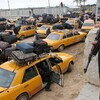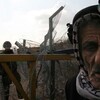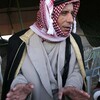
Unexploded ordnance killed 27 since end of war
19 January 2007
There have been 27 reported fatalities and 179 reported injuries from all types of unexploded ordnance in Lebanon. Of these totals, males and females 18 years old or younger accounted for six of the fatalities and 64 of the injuries, according to MACC-SL. All the fatalities and all but five of the injuries resulted from cluster munitions. So far, 839 cluster bomb strike locations have been identified in the south. For each cluster-bomb strike, clearance personnel must verify an area totaling 196,000 square meters to locate (and eventually destroy) all unexploded bomblets. Read more about Unexploded ordnance killed 27 since end of war








